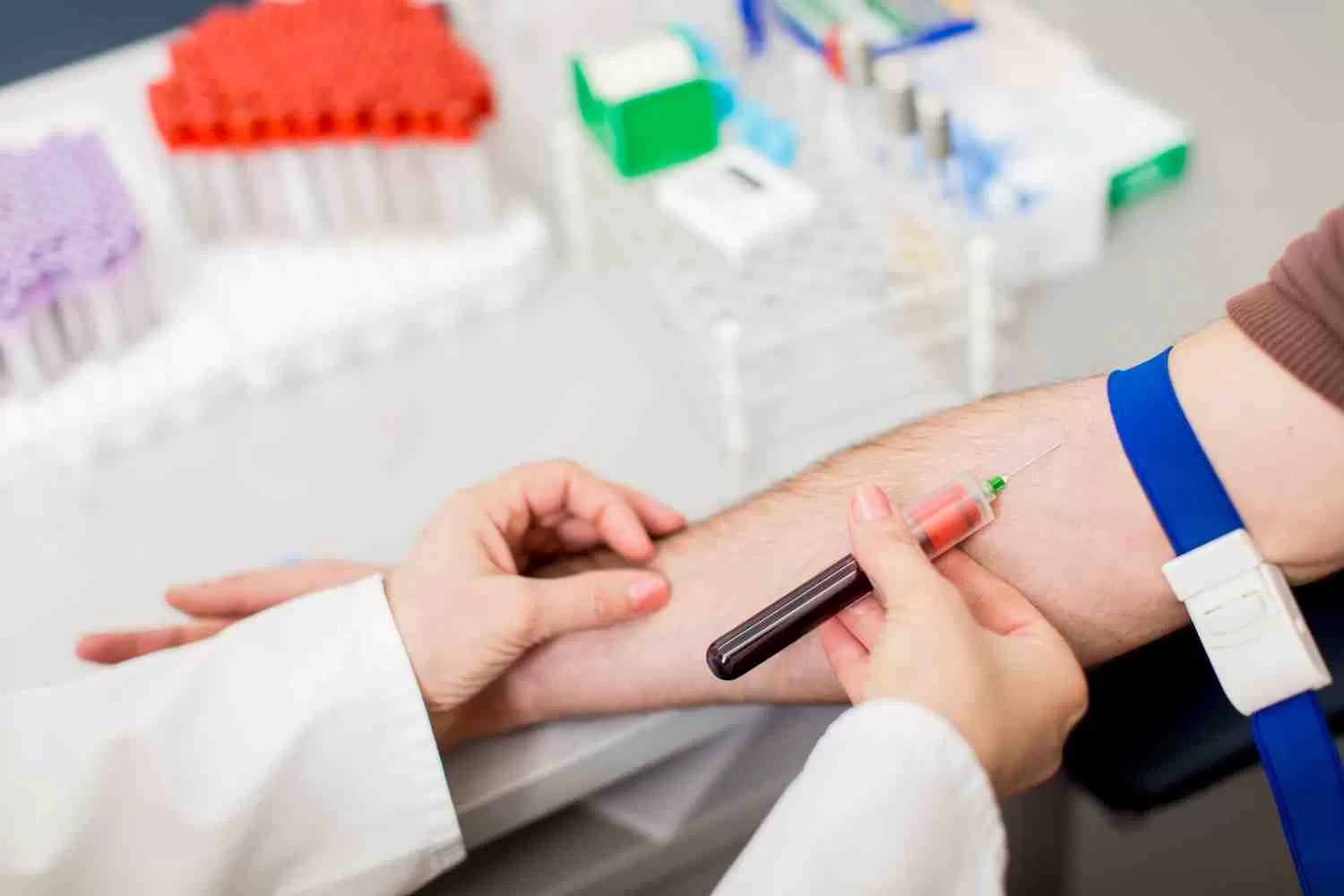Hormonal Testing

Male Infertility is Tested Hormonally in Modern Fertility Programs
Our reproductive facility knows that about 40–50% of men can't have children. When a guy has problems getting pregnant, hormone testing is one of the best techniques to diagnose the problem and check his reproductive system. Hormones regulate reproduction, ovarian function, and sperm production.
This section explains male hormone testing, including its purpose, how it works, probable findings, and the most typical queries.
Tests for Hormones Assist Male Impotence. It's What?
Hormonal testing entails checking a man's blood for hormones that might alter his fertility. All of these hormones are:
- Testosterone: The predominant male hormone. It produces sperm and maintains sexual health.
- Follicle-Stimulating Hormone (FSH): This hormone produces testicular sperm.
- Luteinizing Hormone (LH): Regulates testosterone production.
- Prolactin: When prolactin levels are high or low, reproductive issues may be present.
- Estradiol (E2): Can prevent males from reproducing in excessive doses.
- Thyroid Hormones (T3, T4, or TSH): Thyroid issues can make pregnancy difficult.
These hormones act together to create sperm and keep the testicles working. Abnormal quantities may produce poor sperm counts, slow-moving sperm, or chemical issues that make pregnancy difficult.
Why is Hormone Testing Important?
Identifying the Causes of Infertility
Hormone testing can detect conditions like hypogonadism (low testosterone), hyperprolactinemia (high prolactin), and other endocrine issues.Estimating Sperm Production
Mood and hormone issues might alter sperm production and type. Tests can reveal what causes sperm to migrate or count low.Explaining Unexplained Infertility
Hormone testing can help couples who can't figure out why they're not pregnant.Assessing Testicle Functionality
Hormonal profiles can reveal how effectively your testicles are performing and whether behaviours or drugs are also contributing.Guiding Treatment Options
Doctors may recommend hormone therapy, IVF with ICSI, or ART based on test findings.
How Does Hormone Testing Work?
First, a Physical and Medical History are Required
Before initiating testing, the doctor reviews the patient's medical history, including prior diseases, medications, lifestyle choices, and family infertility. The testicles are examined physically to determine their size, shape, and sexual health.Second, Obtain Blood Testing
Morning blood samples are obtained when hormone levels are greatest. The samples are then sent to a lab for further analysis.The Third Phase is Lab Research
Lab tests include testosterone, FSH, LH, prolactin, estrogen, and thyroid hormones. Frequently used normal values are compared to outcomes.Step 4: Interpret the Results
After reviewing the data, the fertility specialist will check for chemical concerns that may be preventing sperm production or reducing fertility.
Common Conditions Identified Using Hormone Testing
Hypogonadism (Low Testosterone)
Makes it challenging to find and maintain sexual partners. Tiredness and decreased sperm count might result. Treatment frequently includes hormone replacement.Elevated FSH or LH Levels
Indicates testicular injury caused by hereditary or environmental factors.Hyperprolactinemia (High Prolactin)
A reduction in testosterone indicates excessive prolactin. Restoring biological equilibrium may need medical assistance.Thyroid Hormone Issues
Thyroid problems can make pregnancy difficult and require specific attention.Genetic or Chromosomal Conditions
Hormone abnormalities may indicate hereditary illnesses like Klinefelter syndrome, which reduces male fertility.
The Benefits of Male Infertility Hormonal Testing
Accurate Diagnosis
Helps identify sexual issues and create an effective treatment strategy.Customized Medical Plans
Results determine individualized therapies, including hormone therapy, lifestyle adjustments, and ART.Improved IVF and ICSI Success Rates
Resolving hormone issues enhances the effectiveness of advanced reproductive techniques.Early Detection of Problems
Prevents hormonal and reproductive issues from worsening by identifying them early.
Other Considerations
Comprehensive Diagnosis
Hormonal testing is usually part of a broader diagnosis that may involve imaging, genetic, or sperm analysis.Lifestyle Factors
Short-term changes like concern or sickness may influence hormone levels. Consider the implications on your overall health.
Begin Your Journey with Us
Our reproductive department provides thorough hormonal testing for men who are experiencing problems conceiving as part of advanced diagnostics. Our experienced staff ensures proper testing, clear results, and the optimal treatment approach for hormonal issues.
Contact us immediately to schedule an appointment if you are experiencing problems conceiving or want to learn more about your reproductive health. Please let us assist you with your pregnancy journey.
